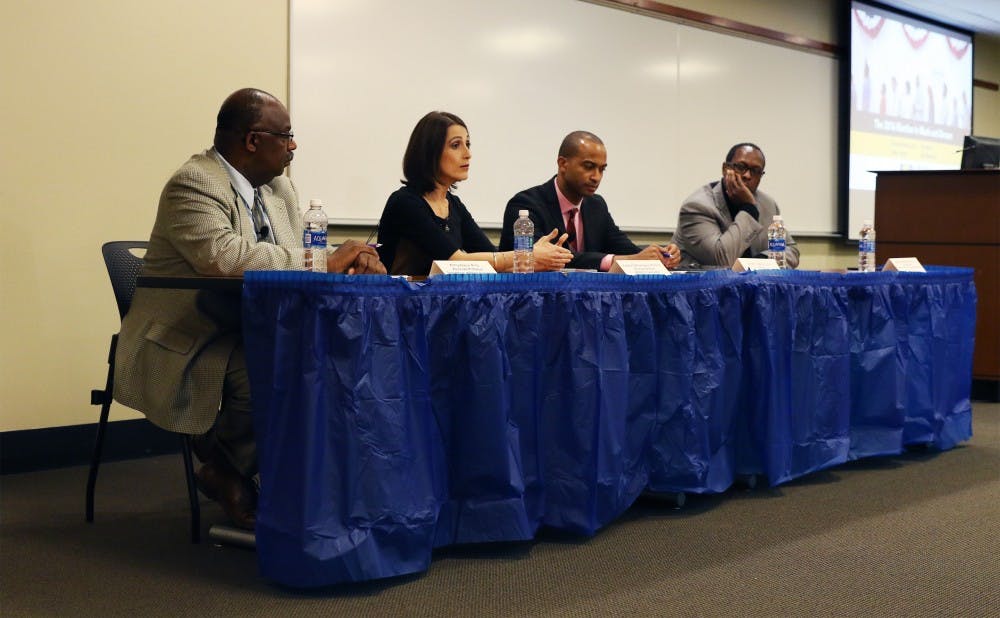Panelists highlighted the importance of minority voters in the upcoming elections, both at the presidential level and lower level ballots, at an event Thursday.
"The 2016 Election in Black and Brown," hosted by the Duke Council on Race and Ethnicity, covered the different aspects and implications surrounding the minority vote. Among the panelists were Kerry Haynie, associate professor of political science and African and African American studies, Dorian Warren, a fellow at the Roosevelt Institute and a political analyst for MSNBC and Victoria DeFrancesco, also political analyst for MSNBC and professor at the University of Texas. The discussion—moderated by Mark Anthony Neal, professor of African and African American studies—was attended by just a handful of students.
“Minorities—Black, Latino, Asian American—have been growing over the last several decades, so just in raw number, they are going to form a critical part [in the election]," DeFrancesco said. "The other part is that... minority communities [are] concentrated in swing states. So it’s not just the raw numbers but also their strategic locations,”
During the discussion, the importance of the vote on all levels of the government was highly emphasized, and that local awareness and action on the political level are needed to make a difference. As an example, Warren highlighted the fact that Color of Change, an organization that tackles social injustices, is focusing heavily on district attorney races throughout the country as a way to bring about progress and change.
“I am a firm believer that all politics is local and that the Latino communities need to focus on issue-by-issue … where it is going to dictate your day-to-day is not necessarily in the White House,” DeFransesco said.
The experts also commented on the presidential candidates’ problems in terms of the voting minority.
Democratic presidential candidate Hillary Clinton has had trouble securing the core Democratic voters due to a lack of outreach to minority communities when compared to the Obama administration, they noted.
“I think we are living in an era where we are unsure if core voters will turn out," Warren said. "I think this is Hillary Clinton’s problem. There is an enthusiasm gap, people say, among her core constituencies, [which are] young people, black people and some Latinos."
Warren brought to light the Republican party's lack of door-to-door campaigning, specifically in terms of the presidential race.
“I have been thinking about the silences of this election—what are people not talking about that we are usually talking about—and the two things that occur to me are, because Trump takes up so much space, money in politics … and the ground game," Warren said. "One reason that I think there might be a landslide is that Hillary just kind of swiped him out with the ground game.”
Warren added that the Republican party may come to this realization and begin to aggressively campaign on the ground after the election.
At the beginning of the discussion, each of the panelists had the opportunity to discuss whether or not they were surprised about the success of Trump in light of his rhetoric. The experts agreed on the historical occurrence of rhetoric like that of Trump—referencing Barry Goldwater and Newt Gingrich—but noted that this rhetoric was more blatant than ever before.
"There have been indeed dog whistle politics, but there also have been bull horn politics," Haynie said. "It used to be symbolic racism, but here you have a guy standing up and overtly ringing that bell in the loudest of ways… it is also surprising the amount of support he has garnered with that tactic."
Get The Chronicle straight to your inbox
Sign up for our weekly newsletter. Cancel at any time.

